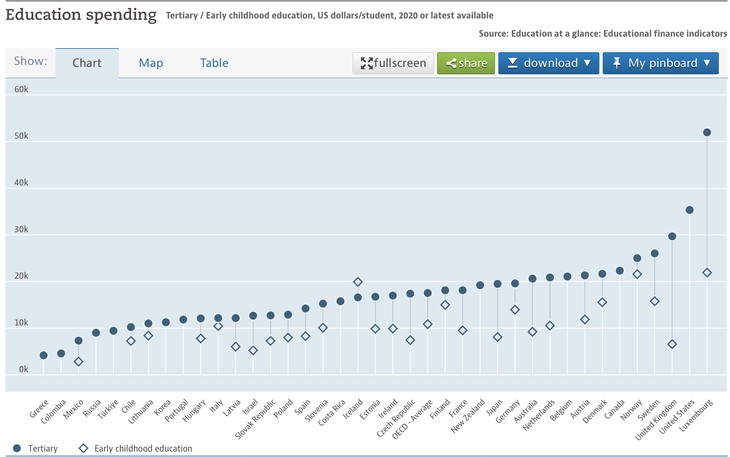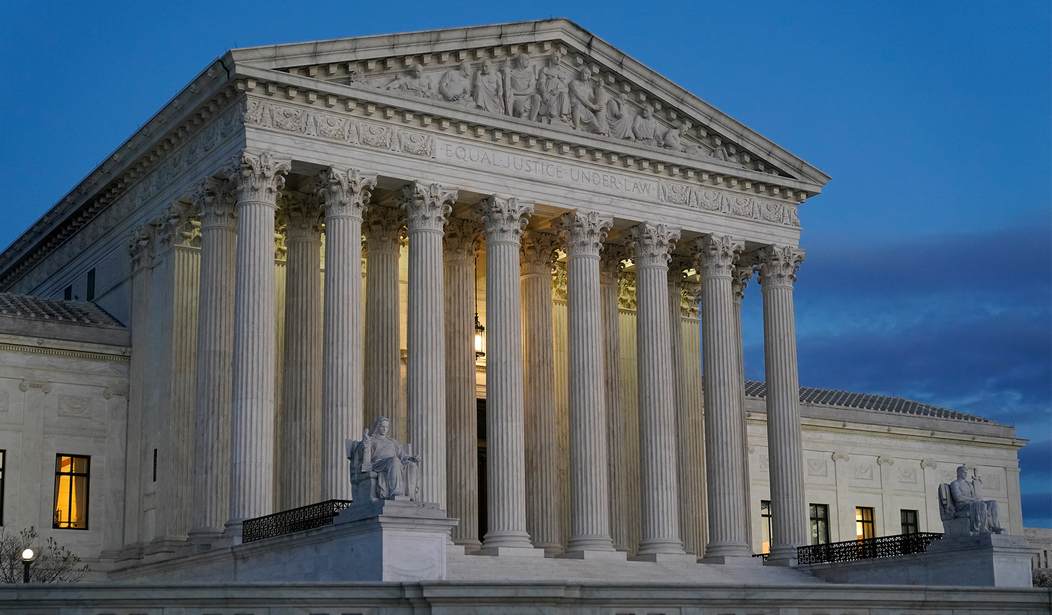Hopefully, this will open the door for students who have been deprived of an education by public schools to punish them for their failures.
The Court’s ruling against the public schools in Michigan, which not only failed to educate the student properly but lied to parents about his progress, opens the door for other students to sue for malfeasance against schools.
WASHINGTON (AP) — The Supreme Court ruled unanimously Tuesday for a deaf student who sued his public school system for providing an inadequate education. The case is significant for other disabled students who allege they were failed by school officials.
The case the justices ruled in involves Miguel Luna Perez, who attended public school in Sturgis, Michigan. Perez’s lawyers told the court that for 12 years the school system neglected the boy and lied to his parents about the progress he was making, permanently stunting his ability to communicate.
The justices ruled that after Perez and his family settled a complaint against the school system — with officials agreeing to pay for additional schooling and sign language instruction — they could pursue money damages under a different federal law. Justice Neil Gorsuch wrote in an eight-page opinion for the court that the case “holds consequences not just for Mr. Perez but for a great many children with disabilities and their parents.”
The Michigan state constitution specifically enumerates the right to public education:
Sec. 2. The legislature shall maintain and support a system of free public elementary and secondary schools as defined by law. Every school district shall provide for the education of its pupils without discrimination as to religion, creed, race, color or national origin.
The state decided to provide Perez a sham education, in which he was taught essentially nothing, including sign language. This means that after having gone through his entire education he was left unable to communicate with anybody save for the few who have learned his own, invented version.
Perez’s lawyers say the school system failed him by providing an aide who was not trained to work with deaf students, did not know sign language and in later years left him alone for hours at a time. After over a decade, Perez did not know any formal sign language and communicated through invented signs that anyone unfamiliar with his unique signing did not understand, his lawyers have said.
Meanwhile, the school awarded him inflated grades and his parents believed he was on track to earn his high school diploma. Just before graduation, however, his family was told he qualified only for a “certificate of completion.”
This is appalling, giving the lie to the idea that the public school system exists for the benefit of students, or even exists to provide the most basic education to students. The schools happily took the money, employed unionized employees, and never even tried to provide an education to a student.
The case was based on the experiences of Miguel Luna Perez, who was denied a Free Appropriate Public Education (FAPE) for years while attending Sturgis (Michigan) Public Schools (SPS). For 12 years, SPS advanced Miguel Luna Perez from grade to grade and inflated his grades to the point he repeatedly made honor roll, even though he couldn’t read or write—and then just before graduation told his family he would receive a certificate of completion but not a high school diploma. His experiences with SPS during those years are heartbreaking.
They didn’t even try. It was a sham. But one that was, undoubtedly, quite profitable for the government workers involved in perpetrating it.
His family responded by pursuing claims under two laws: the broad Americans with Disabilities Act, which prohibits discrimination against disabled people, and the Individuals with Disabilities Education Act. The latter guarantees children with disabilities a free public education that is tailored to their specific needs.
Perez’s family and the school district ultimately settled the IDEA claims. The district agreed to pay for extra schooling and sign language instruction for Perez and his family, among other things, and he graduated from the Michigan School for the deaf in 2020. After the settlement, the family went to federal court and, under the ADA, sought monetary damages, which are not available under the IDEA.
Perez’ parents had to sue the schools to get him an education, which was grudgingly provided only after legal action. Now they are pursuing damages, and the Supreme Court agreed.
As well as they should have. For far too long governments have done their best to immunize themselves against malfeasance, and in almost all cases the actual individuals involved in harming regular citizens remain immunized under the doctrine of qualified immunity. In a just world, the people who perpetrated this fraud upon a child would be forced to pay up and go to jail.
I am sick and tired of the constant propaganda surrounding public schools. Teachers are portrayed as saints (and some of them are, some of them are not), and the schools themselves as sacrosanct.
But the truth is that our public schools are failing millions of children. Children in privileged districts tend to do very well in comparison with those in other countries, but outside the elite schools, performance drops to the lowest in the developed world.
In San Francisco, for instance, almost half of all Black students can barely read.
In 2021, 47% of Black students in SFUSD that are high school juniors don’t even come close to meeting English-language proficiency. That’s 9% higher than the state average for Black 11th graders — which is also abysmal. That means for every one of two Black students leaving San Francisco high schools they can’t read for their age. Including students who are close but still not proficient: 71.5% of Black high school juniors in San Francisco cannot read at a proficient level, compared to 20.3% of Asian students, 22.6% of White students, 32% of Filipino students and 61.8% of Hispanic students. It was bad pre-pandemic as well but it’s gotten a few percentage points worse.
I would say that the American public school system is a joke, but the truth is that it is a scandal. We spend more than any OECD country on education save one: Luxembourg.

It’s pathetic. School performance is almost the inverse of school spending, meaning that school districts get paid enormous amounts of money specifically because they are failing.
Schools blame students for their own poor performance. And there is no doubt that many disadvantaged students are challenging to teach. But the schools themselves make things much harder, focusing on “equity” in discipline rather than ensuring that students get an environment conducive to learning.
I would love to see public schools sued every day of the week. Making them pay a price for their failure would be a good start, and school choice would be a better one.
The Court made this decision unanimously, and thank God they did. Now, let the lawsuits begin!








